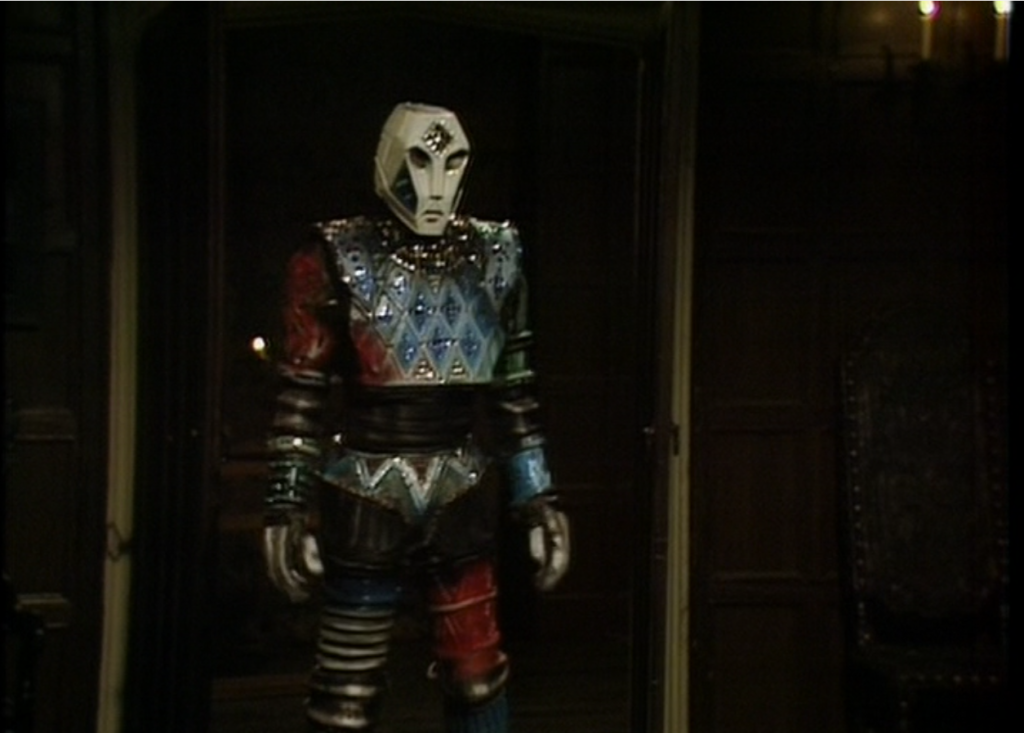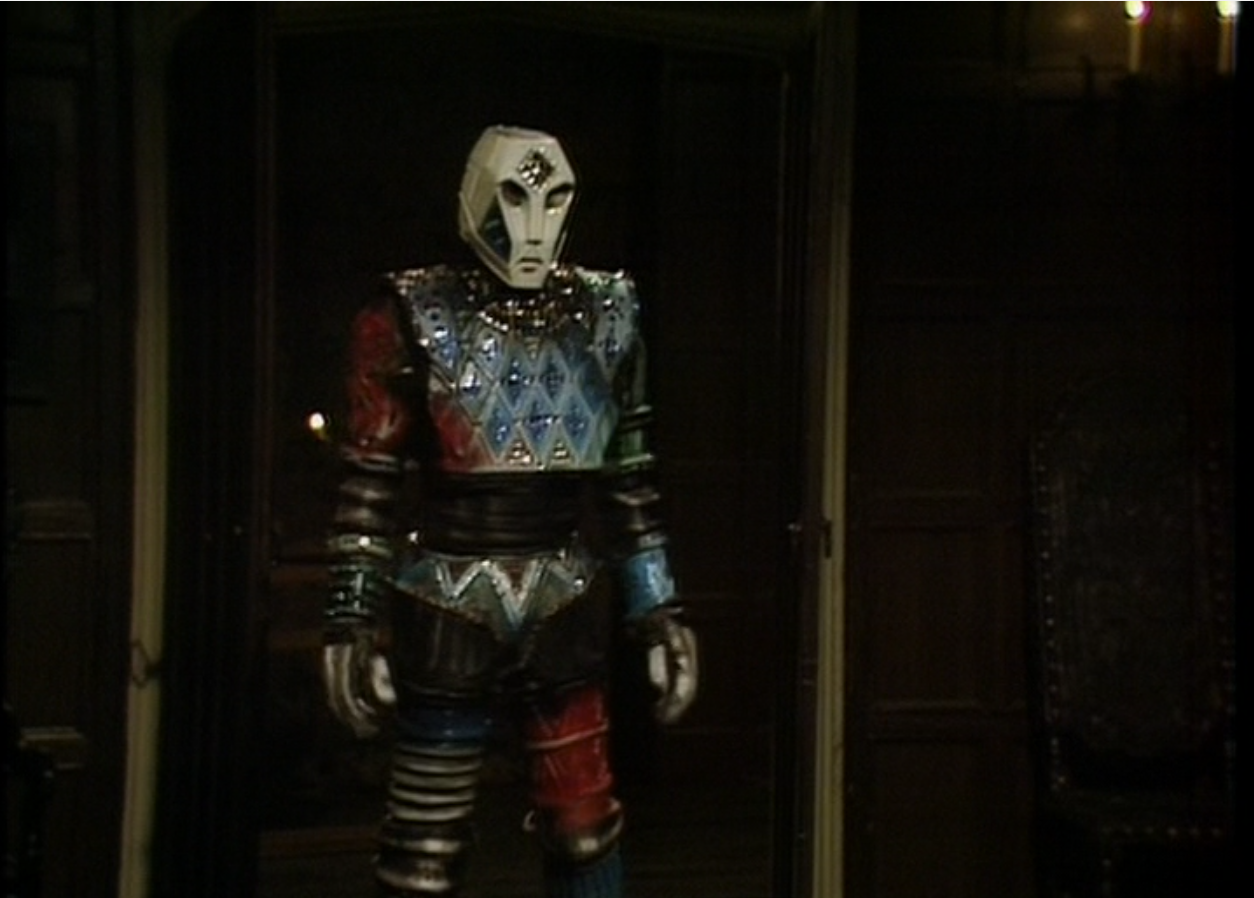TV Review: Doctor Who: The Visitation
Doctor Who is one of the all-time classic British science fiction television series, first airing in 1963, and continuing on and off until the present day. The Doctor (his or her actual name is a bit of a mystery) is an alien who travels in a time-space vehicle called the TARDIS. The TARDIS was in for repairs when the Doctor originally “borrowed” it, and is often unreliable as to its destination, as well as having its “chameleon circuit” stuck in the form of an early 1960s police call box.

In his or her wanderings, the Doctor is usually accompanied by one or more Companions, people they’ve picked up on one adventure or another, who travel with the Doctor until they die, choose to leave, or are deliberately stranded. At the time of this story, “The Visitation”, there are three companions. Adric (Matthew Waterhouse) was a teenage maths genius with poor personal skills and a decided lack of expert knowledge outside math. Nyssa of Traken (Sarah Sutton), a slightly older teen with more well-rounded science training and a pleasant personality. And Tegan Jovanka (Janet Fielding), an Australian flight attendant from 1981 with a heavy dose of snark in her personality.
After a particularly traumatic experience in “Kinda” (though this episode was shot first so the actors had to guess at the details), the Fifth Doctor (Peter Davison) has promised to take Tegan straight back to where and when he picked her up, Heathrow Airport in the current day. From the perspective of her employers, it will be as though she’d never been gone.
“Strange lights in the sky never bode well.”
While the location the TARDIS has brought them to is approximately correct, our wanderers are far too early, having wound up in the 17th Century. The local villagers are on edge, as a few weeks ago there were shooting stars in the sky, and shortly thereafter, plague deaths started to spike.
The Doctor and his companions narrowly escape the hostile villagers, and wind up befriending former thespian and current “gentleman of the Road” Richard Mace (Michael Robbins). His current hiding place in an abandoned barn yields evidence that beings not of Earth are about.
The visitors turn out to be a small group of Terileptil criminals who hijacked a ship to escape a prison planet only to have it get so badly damaged they had to ditch on the nearest life-supporting planet. They have a repurposed android guard for muscle, but are aware that the Earthlings greatly outnumber them. The head Terileptil has a plan for making the bubonic plague much, much worse to even the odds.
Mace is a fun guest character, bombastic but all too willing to admit he’s out of his depth and keeps trying to skip out of the dangerous bits. He finds his backbone when he has to, though.
For a change, bullets actually work on the Terileptil, but their android is made of sterner stuff. These aliens also have especially good masks for the time period with extra animatronics which ate up some of the budget. Their overall plan is kind of stupid, brightened only by the fact that a TARDIS is suddenly available, which would allow them to actually enjoy their newly emptied planet.
The Fifth Doctor is a bit more of a jerk than he usually was during this run of the show, having little patience for Tegan’s sniping and the general idiocy of Earthlings. (The actor is said to have particularly enjoyed this script.)
Nyssa is best companion this go-round, mourning the android when it has to be destroyed–“it was a slave.” Tegan has her moments, and Adric…we see a lot of his insecurity about being useless unless the problem has a mathematical solution, and a couple of bullheaded efforts to solve things on his own.
Producer John Nathan-Turner didn’t like how the sonic screwdriver made it too easy for the Doctor to get out of tight spots, so directed that it be permanently destroyed here. (It wouldn’t come back for years, long after JNT left.)
The ending revealed which real-life historical event the story had been leading up to, especially funny as the Fourth Doctor had specifically stated he wasn’t responsible for that event. (From his point of view, true.)
Overall, a perfectly good episode of Classic Who. Not one of the best, but certainly not one of the worst. It will probably work best if you’ve seen a few of the previous episodes that set up the character beats.

